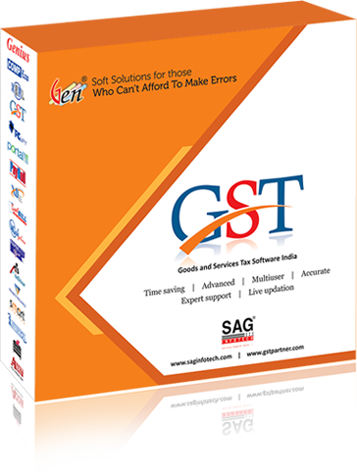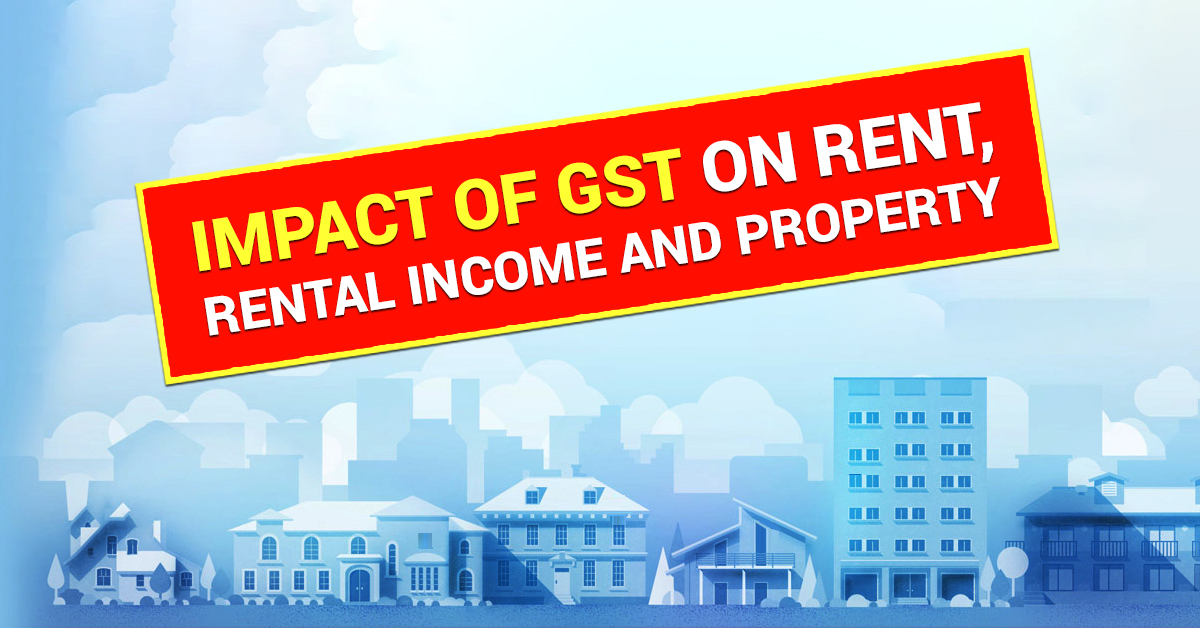Do you have immovable property in India? Is your rental income beyond 20 lakhs per annum? Then you must know the facts about GST on rent, rental income and rental property.
The Goods & Services Tax (GST), which is now a reality in India, is being levied on various taxable goods and services at different rates. Since it is a unified tax system, there will no other tax except for GST on a particular supply of goods/services.
Various renting and leasing services, including property renting, cab renting, etc., are also under the coverage of GST. Let’s find out how GST will be levied on different renting services and at what rate.
Contents
GST on Renting of Immovable Property
Renting out an immovable property will be treated as a service supply under GST, however, GST on rent will be levied only on specific types of rent, such as when a property is given on rent, lease, easement, or licensed to occupy, and when a property is given on lease (partly or wholly) for commercial, residential or industrial purpose.
Before GST, a service tax was applicable on renting services like GST on rental income, in which the landlord has to pay service tax only if his total taxable supply, including the income from rent, exceeded Rs. 10 lakh per year. A service tax of 15% was applicable on properties that were rented out for commercial purposes (irrespective of the type of property).
Recommended: GST on Properties in India
GST Rate for Rental Properties
After the implementation of GST, the service tax was replaced by another tax. Under GST, any type of renting out of any property (whether residential or commercial) for business purpose will be taxable at a fixed rate of 18%.
Note that, GST is only applicable on a property that is being supplied for business or commercial purpose. However, the residential properties being used for the residential purpose are exempt from GST.
GST Threshold for Rent Properties
The threshold limit of 10 lakh (of service tax) has been replaced by 20 lakh limit under GST. That means, any renting of property (for any purpose) with service value less than 20 lakh per annum is exempt from GST. This also applies to the incomes generated from rental premises.
Who has to pay the tax?
The owner of the commercial property earning more than the threshold limit from rents will have to pay taxes after registering as a GST taxpayer. If you have rented out a property for commercial purpose and are earning Rs. 20 lakh or more per annum from it, you need to pay the tax.
What about properties rented out to trusts?
The properties that are owned by a registered religious trust or any other religious place are exempt from GST, only if:
- The rent of rooms on such a property is not more than Rs. 1,000 per day.
- The rent of shops and other similar spaces is not more than Rs. 10,000 per month.
- The rent of community halls or other open areas is not more than Rs. 10,000 per day.
In all other cases where a property is rented out for commercial purpose, a standard GST rate of 18% would be applicable.
TDS on income tax for rental property
The GST paid by the landlord of a rental property will be eventually collected from the tenant, who can deduct TDS (income tax at source) at the standard rate of 10%, only if the total rent of the property is more than Rs. 1.80 lakh per annum. The TDS can be collected both on commercial and residential properties. It will be collected by all tenants except HUFs (Hindu Undivided Families) and individuals who are not liable to pay income tax.
GST on renting a cab
Metered cabs and autorickshaws (and E-rickshaws) are exempt from GST and no tax would be charged on renting a cab or auto service.
Recommended: Impact of GST on Car Prices in India






